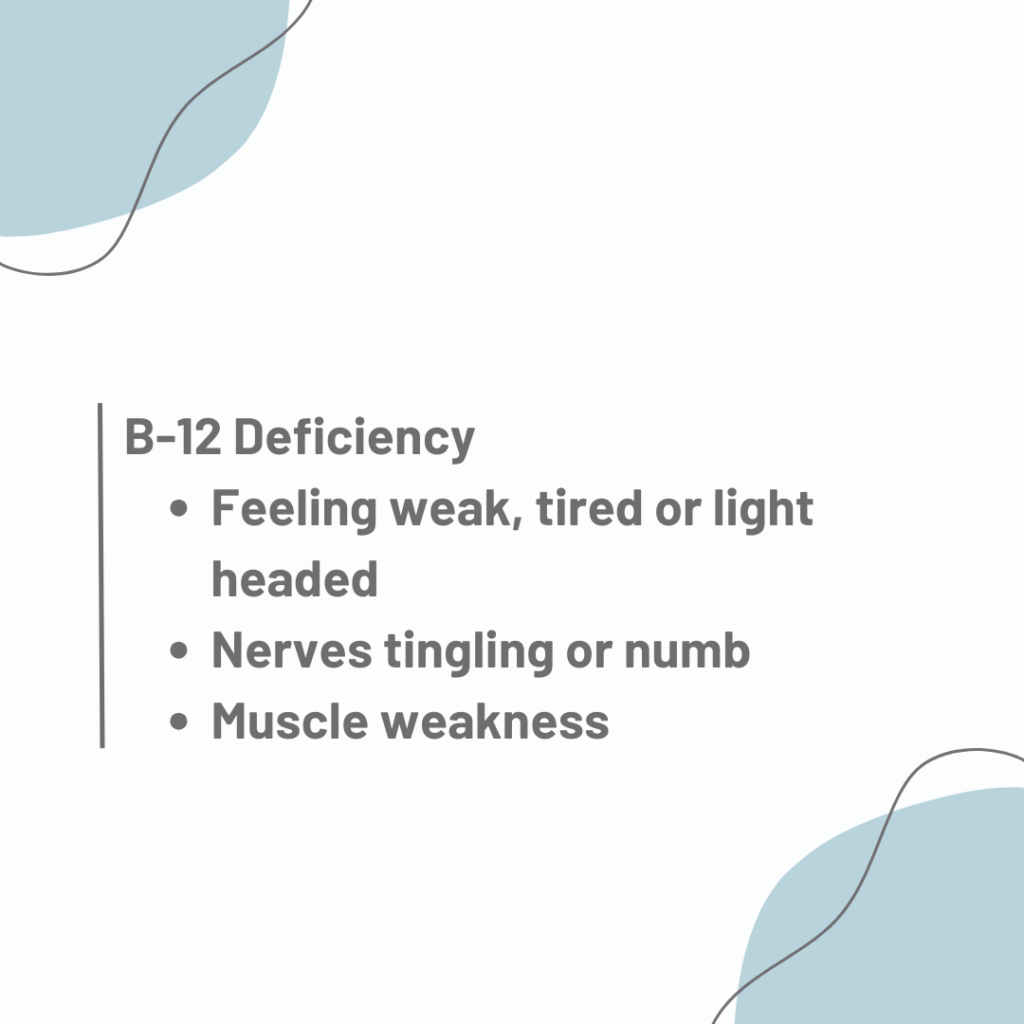Vitamin B12, also known as cobalamin, is a water-soluble vitamin that plays a crucial role in various bodily functions. It offers several important benefits and is essential for maintaining good health.
Here are some of the key values and benefits of vitamin B12:

- Red Blood Cell Formation – Vitamin B12 is necessary for the production of red blood cells in the bone marrow. Without adequate B12, red blood cells can become larger and less functional, leading to a condition called megaloblastic anemia.
- Nervous System Function – B12 is vital for the proper functioning of the nervous system. It plays a role in the formation of myelin, a protective sheath that surrounds and insulates nerve fibers. This helps in the transmission of nerve signals.
- Energy Production – Vitamin B12 is involved in the metabolism of fats and carbohydrates, which are the body’s primary sources of energy. It helps convert food into energy, and a deficiency can lead to fatigue and weakness.
- DNA Synthesis – B12 is necessary for DNA synthesis, cell division, and the maintenance of healthy cells. It is especially important during periods of rapid growth, such as pregnancy and infancy.
- Brain Health – Some studies suggest that B12 may have a role in cognitive function and may help reduce the risk of age-related cognitive decline and neurodegenerative diseases like Alzheimer’s.
- Heart Health – Adequate B12 levels are associated with a lower risk of heart disease. It helps to regulate homocysteine levels, an amino acid that, when elevated, is a risk factor for cardiovascular disease.
- Mood and Mental Health – B12 is involved in the synthesis of neurotransmitters such as serotonin and dopamine, which play a role in mood regulation. Adequate B12 levels may help maintain good mental health and reduce the risk of depression and anxiety.
- Bone Health – Some research suggests that B12, along with other B vitamins, may help improve bone density and reduce the risk of osteoporosis.
- Skin and Hair Health – B12 is involved in the production of skin cells and hair follicles. A deficiency can lead to skin problems and hair loss.
- Supports Immune System – Vitamin B12 is involved in the production and maturation of white blood cells, which are essential for a strong immune system.
Most people can obtain sufficient B12 from their diet, primarily from animal-based foods such as meat, fish, dairy products, and eggs. However, individuals who follow strict vegetarian or vegan diets, older adults, and those with certain medical conditions may be at risk of B12 deficiency and may benefit from B12 supplements or fortified foods.
In conclusion, vitamin B12 is essential for a wide range of bodily functions, including red blood cell formation, nervous system health, energy production, and more. Ensuring an adequate intake of B12 through diet or supplements is crucial for maintaining overall health and well-being.
If you suspect a deficiency or have specific health concerns related to B12, you can talk to the doctor and get a B-12 Intramuscular Injection at our clinic. Contact us to get started and see the variety of supplements available at our Intramuscular Injections page or book your shot today.